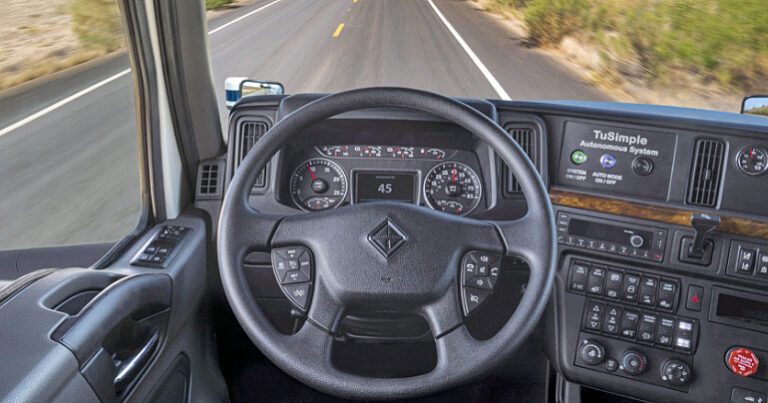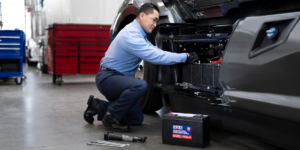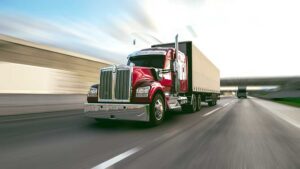COLUMBUS, Ind. — During the OUTLOOK 69, Market Vitals seminar, presented Aug. 22-24 by ACT Research, many attendees expected answers about autonomous trucks. When will they be implemented on a large scale, and where?
The answers to those questions might be surprising.
Several presenters spoke about the use of autonomous vehicles, with the consensus being that the technology simply isn’t there yet and there’s a lot remaining to be done.
Steve Tam, a vice president and analysts for ACT, noted that the level of investment in autonomous vehicles has slowed recently. He pointed out that Waymo, Google’s autonomous vehicle offering, has abandoned its work on autonomous trucks to focus on driverless taxis. TuSimple, another developer of autonomous technology, announced it is trying to sell its U.S. operations and concentrate on its products in China. The autonomous tech firms continuing their efforts in the U.S. are finding that fewer carriers are entering partnerships, and investment cash is harder to come by.
Tam explained that most of these developers operate with “seed money” and are not selling actual products yet, adding that this model isn’t sustainable. Efforts by truck manufacturers are supported by dollars from the non-autonomous vehicles they sell, so they may fare a little better in the long run.
John Diez, CFO of Ryder, also addressed the topic, saying that expecting autonomous Class 8 trucks is “a bridge too far.” Ryder operates more than 260,000 trucks.
Perhaps the most impactful presentation, however, was made by Wiley Deck, the former acting administrator of the Federal Motor Carrier Safety Administration. He currently serves as vice president of government affairs and public policy for Plus, a Santa Clara, California-based Plus provider of automated driving solutions.
Deck began by declaring that the timeline for autonomous trucks keeps getting pushed back. He pointed to technology and regulatory issues as reasons for the delays, pointing out that some pundits have incorrectly claimed we’d see autonomous trucks in five years.
He followed with a reassurance that autonomous trucks will not take driving jobs away from human operators.
“The average age of the commercial truck driver is 50,” he said. “The average age of new CDL recipients is 32. Those people will retire as truck drivers, if they so choose.”
Going one better, Deck continued, “In fact, if you’re 18 years old and just beginning a career in Intrastate truck driving, you can retire as a truck driver if you choose.”
As testing of autonomous vehicles continues, new issues are discovered, he pointed out. In addition, he said, human operators have valuable intuition in various driving situations, something machines just can’t duplicate.
“When a driver sees a ball rolling into the road, he knows to look for children chasing after it,” he said. “A machine doesn’t know that.
The need for development of “smart trailers” was next on Deck’s list.
“What if a trailer blows an inside tire?” he asked. “That’s an out-of-service condition that a driver knows has to be dealt with. But what if the autonomous truck doesn’t know?”
He used other examples, such as an improperly latched trailer door coming open or an ABS system not working properly. Deck noted that sensors could be incorporated to help machines “learn” these things and others, but that adding sensors creates more opportunity for equipment failures to shut down the truck.
The need for consistent regulation was also on Deck’s mind. He spoke about how different states approach autonomy: Some states limit the circumstances under which it can be used while others prohibit autonomous vehicles altogether.
A common attitude is that a driver must be at the wheel, ready to take control of the vehicle. That’s fine during testing, but in the long run, it negates the purpose of having an autonomous vehicle to begin with.
Cliff Abbott is an experienced commercial vehicle driver and owner-operator who still holds a CDL in his home state of Alabama. In nearly 40 years in trucking, he’s been an instructor and trainer and has managed safety and recruiting operations for several carriers. Having never lost his love of the road, Cliff has written a book and hundreds of songs and has been writing for The Trucker for more than a decade.












They will never take over. Weather is fun.
Wait ’til your self-driving truck gives you a ticket.